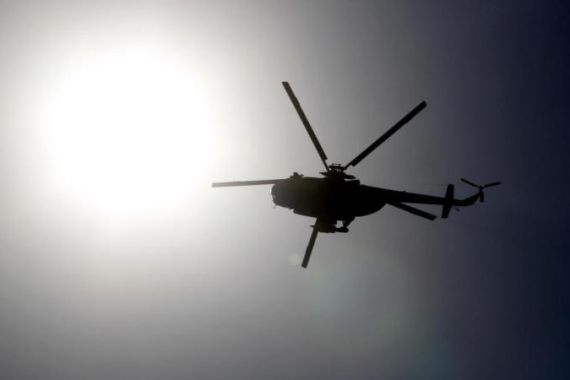Pacification and the counter-revolt in Egypt
The military ousting Mohamed Morsi, despite his faults, will not pacify the country.

Imagine the columns and proclamations in western and Arab-secular outlets, if the Muslim Brotherhood would have perpetuated the massacre that led to the indiscriminate killing of hundreds of demonstrators in Cairo and across Egypt. Compared to this atrocity, the Muslim Brotherhood’s lack of inclusivity seems like a petty crime. The Brotherhood can be faulted for many shortcomings, naivete above all.
But in Mohamed Morsi’s short spell in power there was no systematic effort to terrorise Egyptian society; the power that he exercised was authoritarian but it was not murderous. Not at least because of a lack of experience, the Brotherhood and Morsi fell victim to the “deep state” institutionalised around the military, which was not transformed in the process of the successful revolt against Mubarak. The deep state in Egypt manifests itself in the entrenched military structures that permeate the corridors of power surrounding the Presidential Palace and it is this deep state which remained unaffected by the so-called Arab Spring. Hence, the ability of the generals to launch this counter-revolt.
|
|
| Analyst: Egypt protests ‘beyond the Muslim Brotherhood’ |
Whereas in Iran in 1979 the revolutionary process created new security structures – for instance the Revolutionary Guards who were staunchly loyal to Khomeini’s new government in Tehran – the revolt in Egypt stopped short of modifying the deep political structures of the ancien regime, in particular the military. This is why one has to be careful to call the demise of President Mubarak revolutionary. The Arab Intifada in Egypt did not admonish the residues of Mubarak’s security state. There was radical transformation yes, but a revolution would have overcome the political power of the military as well, as it happened in the revolutions of modernity in Russia, China, Cuba and Iran.
The yardstick of the new West Asia and North Africa is democracy and social equality. Legitimacy and the sovereignty of the state cannot be asserted through brute force or ideological grand narratives such as Islamism or Arabism anymore. The people have lost their fear to protest and they have shown that they are willing to die for their cause. Egyptians have demonstrated that they have the means, courage and strategy to combat the deep state. From the outset their movement had “transversal” capabilities; it cut through several layers of society, it was not confined to a single organisation, it did not function in accordance with an ideological headquarter or an indoctrinated vanguard. The Egyptian revolt has been pluralistic and de-centralised; hence its democratic claim.
The coup d’etat which ousted Mohamed Morsi may have shifted the grounds away from democracy, but it did not generate a new mandate or a consensual narrative that all Egyptians could agree upon. It will certainly not pacify the country. Rather the contrary, the killings are likely to feed into the “martyr complex” which is latent in most movements with a religious tendency, including the Brotherhood. The great threat of the current stand-off for Egypt and the region is that it will sanctify religiously inspired counter-violence.
A short perusal of the recent statements of the Muslim Brotherhood supports the view that the resistance to the military is increasingly couched in religious terms: Gehad el-Haddad proclaimed on Twitter that the “anti-coup rallies” will be organised from “all mosques of Cairo and head towards Ramsis square after Jumaa prayer in ‘Friday of Anger’.” Another MB statement reads: “Despite the pain and sorrow over the loss of our martyrs, the latest coup makers’ crime has increased our determination to end them.” A lesson from history should not be forgotten in this context: Sayyid Qutb, one of the Brotherhood’s main ideological engineers in the 1960s, was a constructive political activist, poet and literary critic before the prison experience and torture in the jails of Nassir’s Egypt radicalised him to the degree that he actively condoned violence against the state. In a similar way, the current crackdown threatens to radicalise the rank and file of the Brotherhood; they may lose faith in the rules of democracy which have been broken so blatantly by their counterparts.
Ironically, the Brotherhood (and Ennahda in Tunisia) looked to the model in Turkey for a blueprint to govern successfully. It is ironic because in the end, Mohamed Morsi is Egypt’s Necmettin Erbakan, who was pressured by the Turkish military to step down as prime minister and later banned from politics by the constitutional court. The chances that this type of power can assert itself in the long run are slim, however. Egyptian politics cannot be conducted at the exclusion of one of the main political movements in the country. The revolt is likely to continue until a non-sectarian-led inclusive government with a democratic mandate emerges. That is when Egypt will be paci?ed.
Dr Arshin Adib-Moghaddam is Reader in Comparative Politics and International Relations and Chair of the Centre for Iranian Studies at SOAS, University of London. His latest book, On the Arab Revolts and the Iranian Revolution: Power and Resistance Today, will be published by Bloomsbury later this year.
Follow him on Twitter: @Adib_Moghaddam
